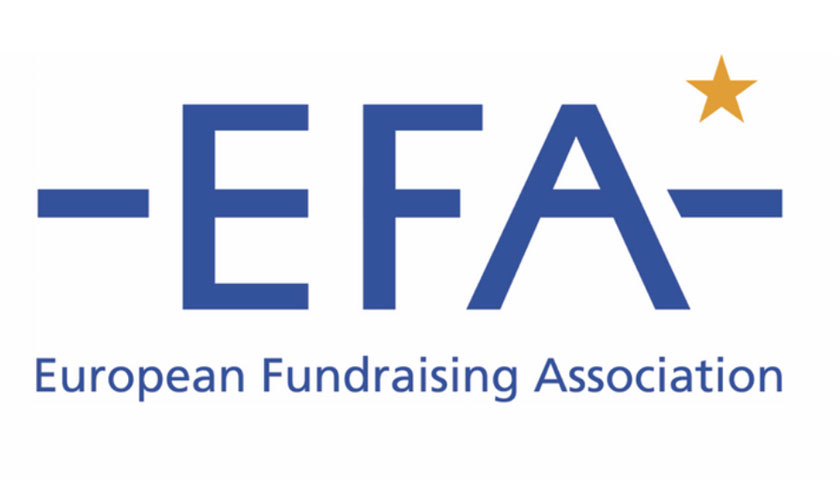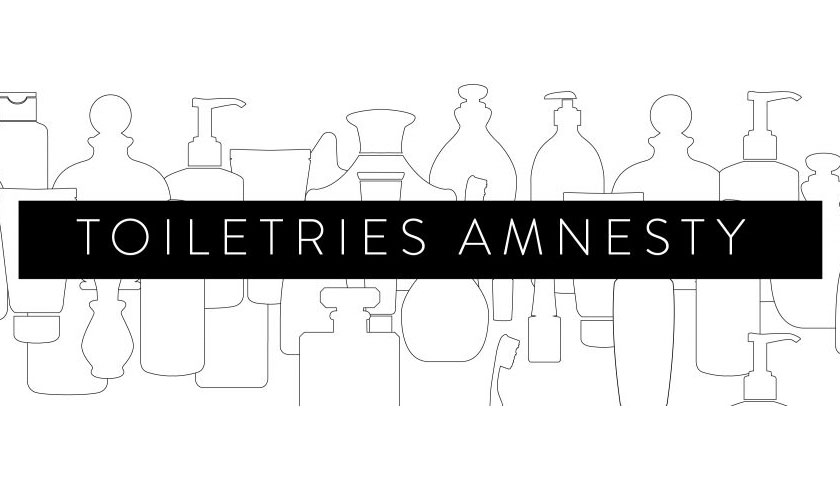The Covid-19 pandemic is transforming European nonprofits’ approach to service delivery and fundraising, according to a new report released by The European Fundraising Association in partnership with Salesforce.org.
In the report – The Impact of Covid-19 on Nonprofits in Europe – we present findings from a survey of 797 representatives of nonprofit organisations from 26 nations across Europe, showing that nonprofits have been hit hard by the pandemic, but that they are innovating and embracing digital to re-shape their future.
Over two thirds of respondents said they had to cancel fundraising activities and just under half struggled to reach beneficiaries or deliver services in lockdown. The most common current challenge cited by nonprofits in the survey was the ability to raise sufficient funds, identified by 62% of respondents.
More than six in ten respondents predict their revenue during 2020 will be lower than expected at the start of the year. Just over a third report that income from individual donations and services has fallen during the pandemic. Of the six national markets with the largest number of responses (enabling comparison), respondents in Italy (53%), Spain (38%) and the UK (37%) were most likely to have seen a decrease in the amount donated. Respondents in Germany (45%) and France (37%) were more likely to have seen an increase, while donations were stable for 40% of respondents in the Netherlands.
Eduard Marček, president of the European Fundraising Association (EFA) and chair of the Slovak Fundraising Centre, says:
“This has been an incredibly tough year for the sector, and this survey indicates that the majority of nonprofits have had to downscale their income projections at a time when their services are urgently needed. The ability to raise enough funds to continue their vital work remains an immense concern.
“And yet, it’s clear that nonprofits have not stood still. They are working hard to innovate, identifying new ways to fundraise, to build supporter engagement and to deliver frontline services.
“The pandemic remains a major threat and the work of the nonprofit sector will be all the more important as we work together to aid Europe’s recovery.”
Rob Acker, CEO of Salesforce.org, adds:
“This year was not something any of us planned for, but it is one where the nonprofit community redefined resilience. Demand increased while funding decreased, yet we’ve seen incredible examples of new services, creative fundraising, and agile operations stem from our nonprofit community.”
Transforming service delivery and fundraising
Since the pandemic struck, nonprofits have ramped up their use of digital to raise funds, engage with supporters and deliver services. More than half of respondents said they have found new ways to deliver services (53%). Two thirds said they are delivering more services online and over one third say they are increasing their use of the telephone for services.
Almost seven in ten respondents increased their use of digital channels for fundraising, four in ten launched emergency appeals and over one third started using fundraising channels that were new to them. Nonprofits are transforming their future fundraising strategies, with six in ten respondents saying they will increase their focus on digital channels and more than half (56%) diversifying their approach to use a broader range of channels. Only 11% say their future fundraising strategy will not change.
Insights from Italy, UK and the Netherlands
The pandemic cast a hefty shadow in Italy, with respondents in the country most likely to anticipate a fall in their total revenue for the year. More than half of those surveyed launched emergency appeals to raise funding, and while nonprofits in Italy are embracing digital channels for fundraising, there is also a notable increase of focus on supporter care.
Simona Biancu, vice president of the Italian Fundraising Association (ASSIF) and fundraising / philanthropic adviser at ENGAGEDin, comments:
“There has been a real shift in the way that nonprofits appeal for funds and engage with their supporters in Italy this year, particularly when it comes to medium and smaller nonprofit organisations. I’m starting to see a much stronger desire to invest in fundraising and to think from a long-term perspective.
“During the pandemic, there was no choice; nonprofits here had to try new things, whether that was launching crisis appeals or asking supporters to give online – something that wasn’t thought of as particularly common for Italians. They had to stop thinking about what they couldn’t do and the risks, reaching out in different ways. This means that we’ve seen some incredibly ambitious campaigns, often with very impressive results.
“So, ironically, while the pandemic has been devastating in so many ways, it has also brought about an opportunity to reshape the future of our organisations, how we work, our role in the community and to embed a culture of giving in Italy.
“Nonprofits have come out of this bolder and braver. There is greater maturity around our fundraising, with accelerated learning and professionalisation. And that is filtering through to the public, raising awareness around the vital role that the sector plays in Italy. Giving to charity seems more widely recognised as a natural thing to do and that’s a huge step forward for us all.”
Meanwhile, in the UK, the impact on service delivery seemed to be particularly widespread with more than half of respondents in the nation reporting difficulty in delivering services during lockdown. At the same time, respondents indicated that demand for their services had increased during the pandemic. There was a huge amount of change, with almost three quarters of UK respondents saying they had identified new ways to deliver services, and the large majority making greater use of digital channels. Similarly, although there have been widespread cancellations of fundraising activities or events, UK respondents upped their use of digital for fundraising and around four in ten said they had started using channels that were new to them.
Respondents also indicate that staff capacity was a more prominent issue for UK nonprofits. While the number of staff available to work dropped for around one third of respondents across the full survey sample, in the UK – where government introduced a furlough scheme – more than half (56%) of respondents recorded a reduction in staff.
Daniel Fluskey, head of policy and external affairs at the Chartered Institute of Fundraising, says:
“The results in this survey echo and reinforce the fundraising picture that we hear and see from across our membership in the UK. The expected fall in income over the year resonates with the research we’ve collaborated on with Pro Bono Economics and Charity Finance Group – lots of charities are having to make tough decisions about their staffing levels and service delivery to get through winter and into 2021. The fact that UK respondents are reporting a higher impact on service delivery and a higher likelihood of having to reduce staff levels shows just how challenging the situation is for UK charities right now.
“While many organisations are trying new things and working in different ways, it’s interesting to see that in the UK the use of virtual events has been more prevalent than the average across Europe. While this could be a reflection of the severity of lockdown and social distancing measures in the UK, it may also be that some of the skills and technology necessary to deliver virtual events are more developed in some of the UK’s charity sector. What is clear is that the need and opportunity to try new things, fundraise in innovative and different ways, is not over – charities are going to have to continue to be nimble and responsive as they respond to the challenges that the coming months, and indeed years, are going to bring.”
In the Netherlands, use of social media or messaging for fundraising was particularly prevalent during the height of the pandemic, with nonprofits also making widespread use of email and online fundraising channels. The number of donations and amount given appear to have been a little more stable in the Netherlands than elsewhere, and yet the ability to raise sufficient funds remains the primary concern for those contributing to the survey.
Commenting on the findings, Margreet Plug, director of Goede Doelen Nederland, says:
“It is of course not surprising that our sector is affected by the corona crisis, but we see that there is great willingness to help each other today. Regular donors continue to support charities and the sector is showing power. Charities work together to continue their work or develop new activities that help society through the corona crisis. We also see more charities working online.”
While there is some variance around the impact of the pandemic at a national level, it’s clear that this year has been a rapid accelerant for change and digital transformation for nonprofits. Future fundraising strategies, service delivery and the way that nonprofits work internally and collaborate with others have transformed markedly, demonstrating once more the sector’s ability, determination and passion to continue their vital work.



